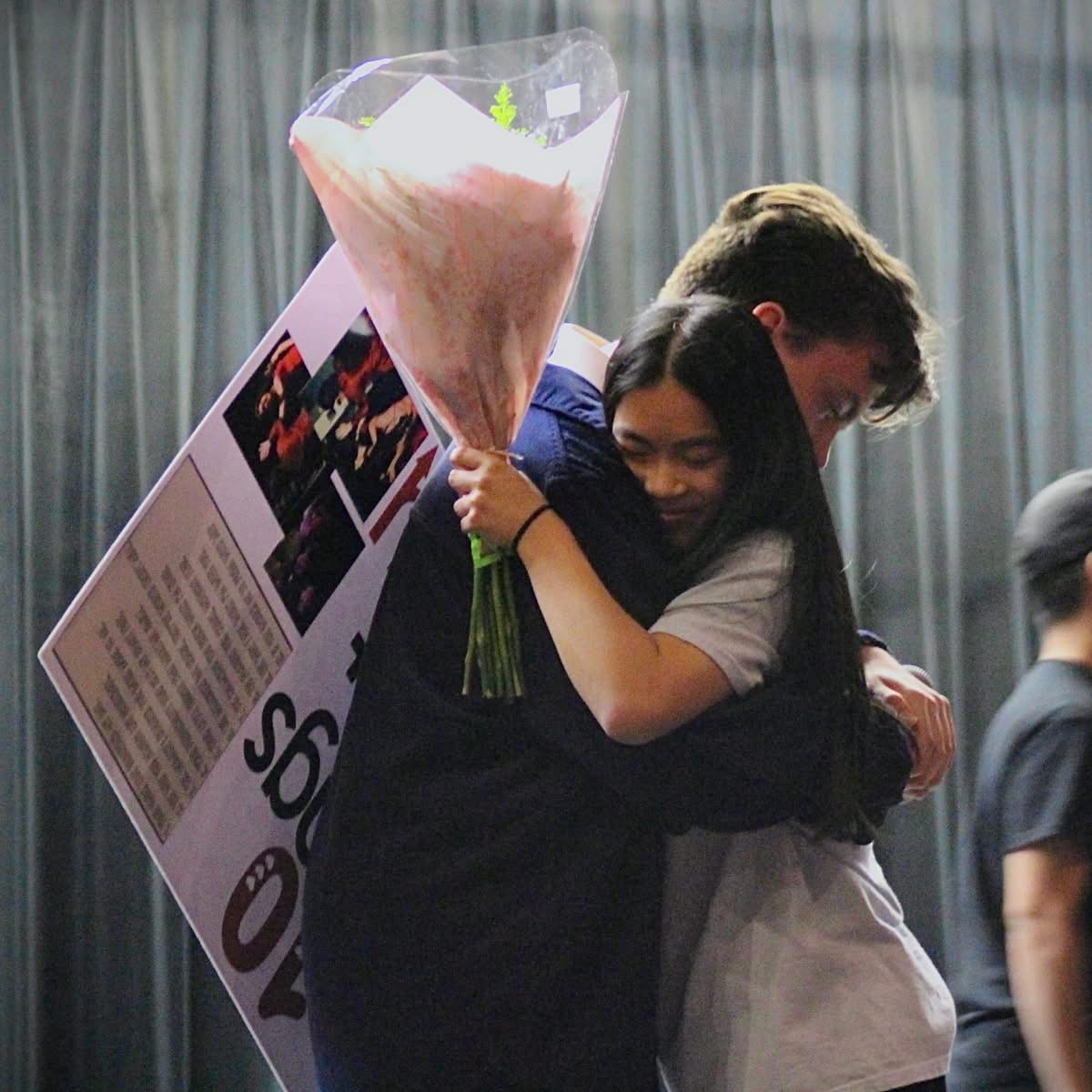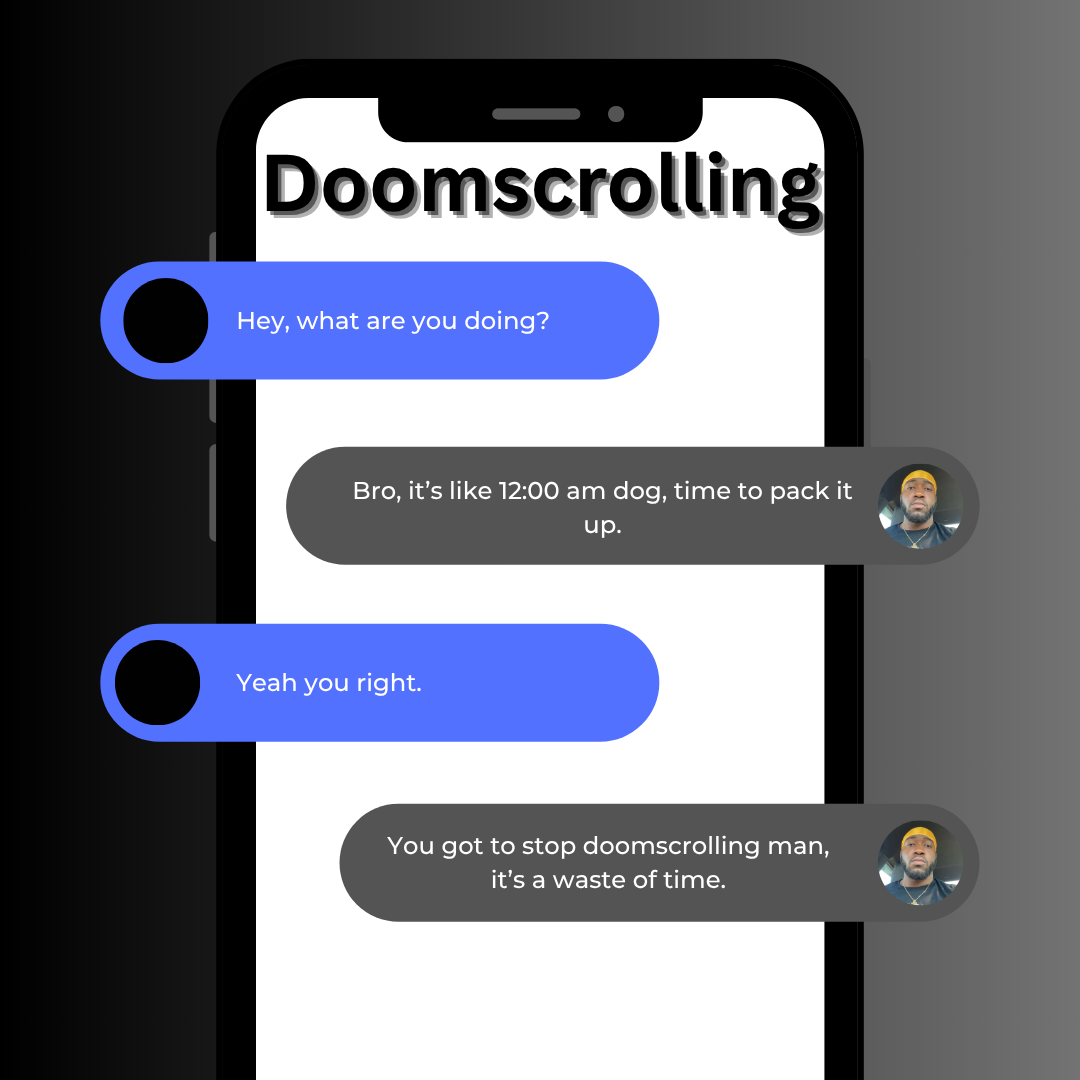Anxiety on the rise for teens
June 6, 2018
Shortness of breath, chest pain, and a rapid fluttering or pounding of heart. Imagine sitting in class and a sudden feeling of these symptoms comes upon you. Within minutes, you experience a sudden feeling of intense anxiety and a fear of terror. You try to calm yourself down, realizing that you’re having another panic attack.
“I wish people would understand how hard it is. Anxiety will drain your energy and make everything seem scarier than it is, and people don’t seem to understand that,” senior Elizabeth Gyrn said. “People don’t know why I will suddenly have a panic attack in a restaurant or in class because we ‘weren’t really doing anything.’ Anxiety literally alters the way we think, and people say I’m just being dramatic.”
For many, anxiety is a struggle that quickly seems to take over.
“My definition of anxiety is when stress becomes too much and you overthink everything. My anxiety came from a combination of things, as my grades dropped tremendously and I lost all my friends,” Gyrn said. “I felt they all saw me as dumb, useless, and pathetic. All of my anxiety caused me to isolate myself and push people away. Anxiety took control and ruined my life. Anxiety is serious, and it’s as much of a handicap as a broken leg.”
Counselor Virginia Krolcyzk, who is also a professor at Sienna Heights University, has written a book over the last two years on anxiety called “Investing in Students and their Needs.” Krolcyzk’s own definition of anxiety is “when you fear for what you don’t know.”
Throughout the past decade, Krolcyzk has seen a rapid increase in students dealing with anxiety, and she attributes much of this to “a faulty educational state system,” where many negative changes have been mandated in the way Michigan’s schools are run.
“Curriculum forces kids to take classes that they have no interest in,” Krolcyzk said. “The curriculum is a main reason why students have had an increase in anxiety.”
For example, years ago students were able to graduate early, leave school early, and were able to leave for lunch. According to
“Investing in Students and their Needs,” the graduation requirements in 1989 were much more in favor of students’ interests compared to 2017. In 1989, students were able to take eleven electives, while now students are only able to take five electives. Furthermore, in 1989, students only had to take two math classes, while now they have to take four math classes.
Gyrn, a senior, began dealing with anxiety during her freshman year.
“I was having awful stomach pain and throwing up just thinking about going to school,” Gyrn said. “I had fallen behind in my classes and the stress of it all caused me to have panic attacks every morning before school. It got so bad to the point where I was forced to drop out of school for a semester.”
Like many, Gyrn deals with anxiety on a daily basis.
“Now, luckily, it isn’t as extreme,” Gyrn said, “as I’m able to do schoolwork and go out and enjoy life.”
For those starting to deal with anxiety, or have trouble with dealing with anxiety. Gyrn has a technique that she uses to cope.
“When the panic attacks come back, I use an effective technique,” Gyrn said. “It tells you to look for five things you can see, four things you can touch, three things you can hear, two things you can smell, and one thing you can taste. I recommend it for anyone having panicky feelings.”
Krolcyzk advises people dealing with anxiety to find balance.
“I believe if you find a balance between your mind and soul, it’ll help,” Krolcyzk said. “My theory is that students who don’t find balance aren’t happy. Find your strengths and passions, and them explore them. Try and find what makes you feel good. When you feel good, you relax; when you relax, you think; when you think, you create.”
Anxiety is a huge problem not only locally, but worldwide, as well. Anxiety disorders affect 18.1 percent of adults in the United States, with approximately 40 million adults between the ages of 18 to 54. According a recently-released study by the American Psychiatric Association, four out of ten people say they’re more anxious now than last year.
With such a large number of people dealing with anxiety, Krolcyzk encourages students to stay positive and try their best to cope.
‘‘Whenever you fall, get right back up,” Krolcyzk said. “Know that everything will be okay.”
Anxiety can stem from a multitude of reasons, ranging from school, work or social interactions.
“I get anxious about being late to school,” junior Michelle Nabozny said. “I hate knowing that I’ll have to walk in with everyone staring at me.”
High school can be stressful, but when students are able to enjoy playing sports you would think they would be able to do it without being anxious. Well, think again.
“I get really anxious about home soccer games,” junior Hailey Hough. “I feel this way because when we’re at our home field I want to be able to give pride to the players and the fans that come out for being a Chieftain.”
As someone who has dealt with anxiety for multiple years, Gyrn has many words of encouragement for those dealing with similar problems.
“For anyone dealing with anxiety, trust me when I say this: no one cares. My anxiety stemmed from the fact that people watched me everywhere I went, and they knew I was a failure,” Gyrn said. “I was worried people would see when I wasn’t in school and question why. As I’ve learned over the years, everyone has their own problems and they could care less about what you do. As for those with anxiety about school, you can do it. It’s not as bad as you think. So take a deep breath and have some alone time in the bathroom, it’s okay. I’ve had anxiety for four years, and this year I’m graduating in a couple weeks. It’ll all work out for you, I promise.”
Gyrn says anxiety is something society shouldn’t take lightly, especially as it’s grown so rapidly within the last decade. Whether it’s work, school, relationships, or athletics that makes you anxious, she urges people to remember that there are many support systems and tools available for people with anxiety, whether it’s a friend, family member, or counselor.
“If friends don’t understand [your anxiety], it’s okay, just have a support system,” she said. “It’s hard to stay positive without friends who are there to love and comfort you.”












